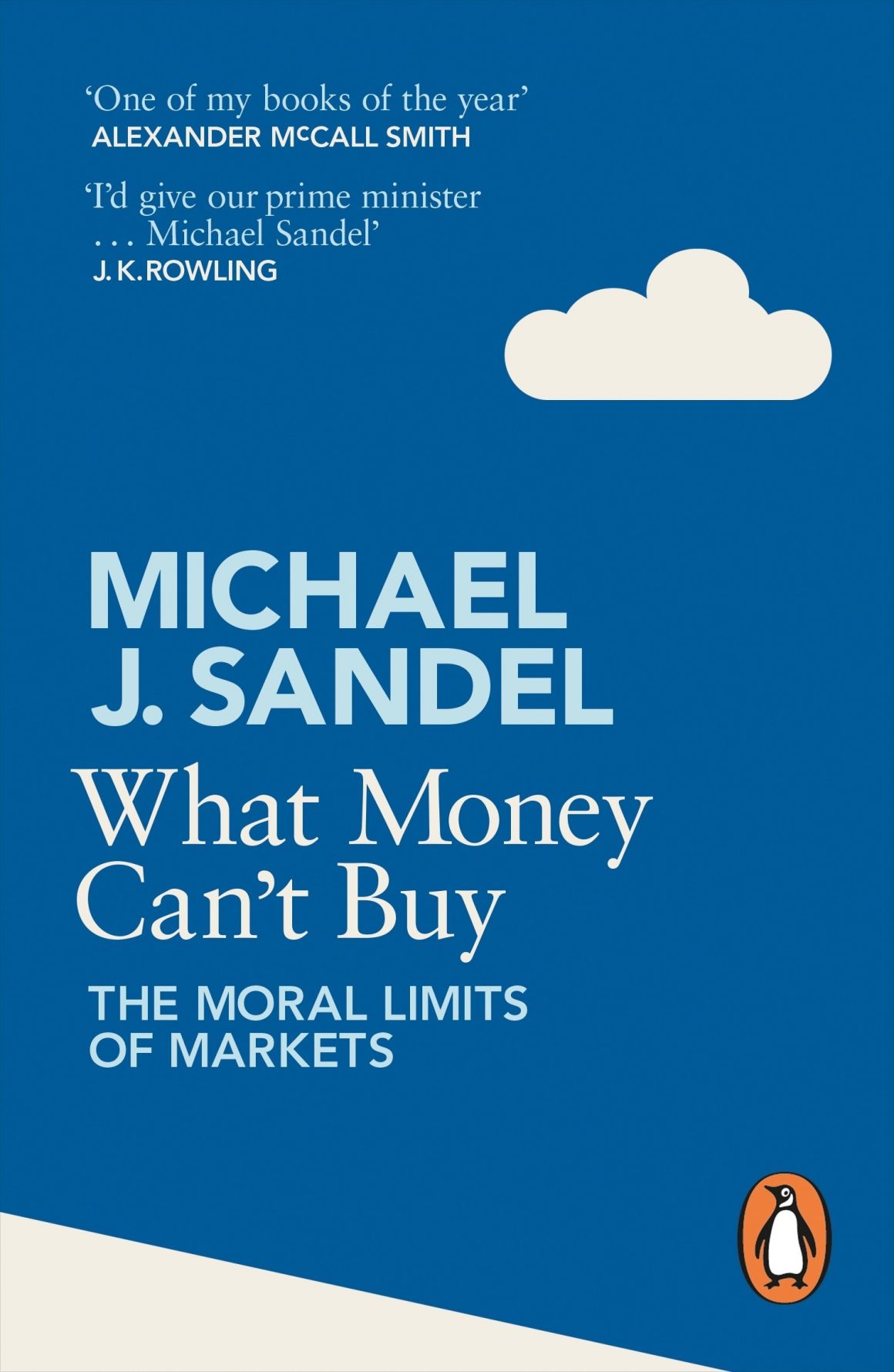The key principle of the book What money can’t buy by Michael Sandel is that there are two distinct norms that are associated with anything. One is the market norm which deals with the practical economic effects and the other is the non-market norm which is to do with the intangible stuff like morals and ethics. As goods and services are bought and sold in a market, the meaning associated with them mutates. For example, when you decide to help your niece with her homework, you are connecting with her out of love. She perceives this help as guidance from a loved one. When you tutor kids in exchange for money, you are doing a business. The kids also perceive it as a business transaction. The meaning of both these services is completely different.

This also applies to how you structure payment for anything. A late fee for a video store is a fee. It is a business where you can buy the privilege of keeping a video for an extended period of time and you don’t owe it to the a commercial enterprise to return it on time if you’re willing to pay for it. A public library imposes a late fine as a penalty. The purpose of a library is to allow sharing of resources within a community and you should feel guilty if you keep a book with you longer. It is right in penalising you as your late return inconveniences other people. The same is true when you decide to offer money for anything.
I looked at the question of whether you should offer money to your kids to adopt good habits, like say, reading.
Consider this scenario of a day care centre in Israel where some parents’ tardiness in picking up their kids, frequently led to the caretakers having to stay late to wait for them. To dissuade parents from coming in late, the centre decided to levy a fine on late pickups. If you’re guessing things got better from here on, you’re wrong. Putting in a fine, legitimised the late arrival by parents who now thought it was a fees they would be paying, to pick up their kids more flexibly. The fine, undermined the moral duty of picking up their kids on time. It replaced the guilt parents would feel when the staff had to work late on their behalf. It ‘crowded out’ the moral consideration completely.
The fact that you can legitimately pay a fees for something, absolves you of the moral obligation attached to it. This is the same for the fine that is levied on people who are caught using the public transport without a ticket. The fine is often a multiple of the price of a ticket but it frees up people from having to do the right thing, which is to pay their due in ensuring the smooth functioning of the public transport. A group in Paris decided to pool its money together to pay the fine in case one of its members ever got caught traveling without a ticket. A rudimentary fine insurance of sorts. People have mixed views about them. If you look at it purely from the economic point of view, it seems very logical but if you come at it from a moral standpoint though, there seem to be a lot of cracks in this system.
If people continued to pay the fees for procreating more than others, it makes the Chinese government look like its in the business of babies.
 Another interesting example that Sandel discusses in the book is about the commercialisation of sports venues. The loud corporate branding by renaming stadiums and the creation of special VIP boxes is detrimental to the egalitarian spirit that comes with being a sports fan. He argues that sports stadium were places where people from all walks of life could come together and revel in the feeling that comes with supporting their team. For the time the game was on, it didn’t matter who was a newspaper boy and who was a big shot investor. Everyone connected with the game on a human level and enjoyed the sport together. In that sense, sports was a great leveller. Extreme commercialisation has changed the meaning of a sports event for sports fans.
Another interesting example that Sandel discusses in the book is about the commercialisation of sports venues. The loud corporate branding by renaming stadiums and the creation of special VIP boxes is detrimental to the egalitarian spirit that comes with being a sports fan. He argues that sports stadium were places where people from all walks of life could come together and revel in the feeling that comes with supporting their team. For the time the game was on, it didn’t matter who was a newspaper boy and who was a big shot investor. Everyone connected with the game on a human level and enjoyed the sport together. In that sense, sports was a great leveller. Extreme commercialisation has changed the meaning of a sports event for sports fans.
Consider the controversial example of China’s one child policy. For long Chinese government was imposing fines on those violating the one child policy. The fine was large but not large enough for the affluent. The rich were regularly seen happily paying the fine and treating it like a fees to have another child. The number of people doing this wasn’t large but the underlying effect of the increasing number of people paying the fine is the shift in the norm. If people continued to pay the fees for procreating more than others, it makes the Chinese government look like its in the business of babies. It also takes away the stigma attached to having more than one baby. The Chinese government decided to hit the affluent where it hurts them, by moving away from monetary fine to things like not giving contracts to the companies owned by violators, banning concerts and tv appearances of celebrities with more than one child, etc. They had to do this, because they understood the effects of shifting norms. Population control was only possible if it remained a moral obligation and not a market practice where fees or fines dictates compliance.
There is a very important lesson here. The norms associated with things can shift on the basis of monetary exchanges and completely change the context in which people perceive it. If there’s anything that Israeli day care, Paris subway and China one child policy examples tell us, is that bringing in monetary transactions, changes people’s attitudes and they may not always work in the direction of where you want things to go.
I run a startup called Harmonize. We are hiring and if you’re looking for an exciting startup journey, please write to jobs@harmonizehq.com. Apart from this blog, I tweet about startup life and practical wisdom in books.